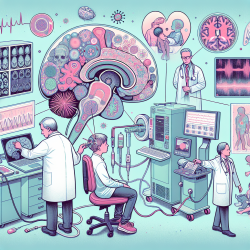Introduction
In recent years, mental health has become a critical focus in educational settings, with stigma being a significant barrier to effective support and treatment. The systematic review titled "Interventions to Reduce Stigma Related to Mental Illnesses in Educational Institutes" provides valuable insights into how educational institutions can address this issue. By implementing data-driven interventions, schools can improve knowledge, attitudes, and beliefs regarding mental health disorders among students.
Key Findings from the Research
The review analyzed 44 randomized controlled trials, highlighting several effective strategies to reduce stigma:
- Educational Interventions: Lectures, case scenarios, and role-plays were found to significantly improve mental health literacy and reduce stigma.
- Contact-Based Interventions: Direct interaction with individuals who have experienced mental health challenges helped decrease both public and self-stigma.
- Role-Playing: Engaging students in role-playing scenarios fostered empathy and understanding, reducing social distance and enhancing supportive behaviors.
Implementing Effective Strategies
For practitioners looking to implement these findings, consider the following steps:
- Incorporate Mental Health Education: Integrate mental health topics into the curriculum through lectures and interactive discussions to enhance understanding and reduce misconceptions.
- Facilitate Contact-Based Learning: Organize sessions where students can interact with individuals who have lived experiences of mental health challenges, either in person or through multimedia presentations.
- Utilize Role-Playing Activities: Develop role-playing exercises that allow students to step into the shoes of those with mental health issues, fostering empathy and reducing stigma.
Encouraging Further Research
While the reviewed interventions show promise, there is a need for further research to explore long-term effects and the applicability of these strategies across diverse cultural contexts. Practitioners are encouraged to engage in continuous learning and contribute to the growing body of research on mental health stigma reduction.
Conclusion
By implementing these evidence-based strategies, educational institutions can play a pivotal role in reducing mental health stigma and creating a supportive environment for students. Practitioners are urged to embrace these findings and actively participate in ongoing research to refine and expand these interventions.
To read the original research paper, please follow this link: Interventions to Reduce Stigma Related to Mental Illnesses in Educational Institutes: a Systematic Review.










